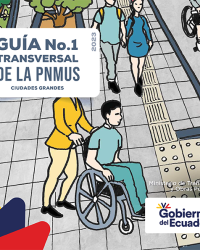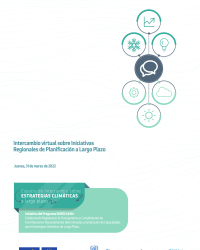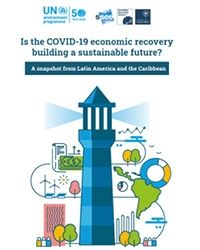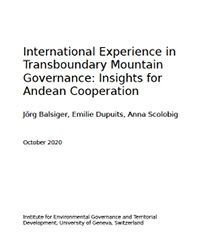Búsqueda por categoría
Common Framework for Sustainable Finance Taxonomies for Latin America and the Caribbean
1487 Downloads
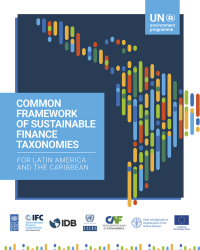 Intergovernmental Panel on Climate Change reports published in 2022 classified the Latin America and Caribbean (LAC) region as “highly exposed, vulnerable and strongly impacted by climate change”. To address this existential threat and align economies with the UN Sustainable Development Goals, governments in the region – and globally – are developing sustainability taxonomies at a rapid pace. However, a lack of comparability between national taxonomies creates hurdles for trade and international capital flows towards low-carbon projects.
Intergovernmental Panel on Climate Change reports published in 2022 classified the Latin America and Caribbean (LAC) region as “highly exposed, vulnerable and strongly impacted by climate change”. To address this existential threat and align economies with the UN Sustainable Development Goals, governments in the region – and globally – are developing sustainability taxonomies at a rapid pace. However, a lack of comparability between national taxonomies creates hurdles for trade and international capital flows towards low-carbon projects.
This framework aims to serve as a catalyst for progress towards sustainable finance implementation, providing LAC member states a regional alignment approach to unlock opportunities and financing for long-term value creation, shared prosperity, and sustainable development in the region. The guiding principles established in this report ensure taxonomies are science-based, allowing for a credible transition for high emitting sectors towards net-zero emissions by 2050 and improving the adaptability and resilience of assets and activities across all sectors. By establishing essential guiding principles, designing objective classification systems for sectors and activities, and drawing upon the European Union and other international best practices, the LAC Taxonomy Common Framework ensures a high level of transparency and interoperability, thus facilitating cross-border capital flows for social and environmentally sustainable investments. The report also enables private sector actors to make more informed investment decisions by offering clear guidance on green and social investments.
This project was developed by the Working Group on Sustainable Finance Taxonomies for Latin America and the Caribbean and financed by the European Union through the EUROCLIMA+ Programme. The Working Group was built as part of the Interagency Technical Committee of the Forum of Ministers of Environment of Latin America and the Caribbean and is constituted by the United Nations Environment Programme Finance Initiative (UNEP FI), the United Nations Development Programme (UNDP), the International Finance Corporation (IFC), the Interamerican Development Bank (IDB), the International Monetary Fund (IMF), the World Bank, the Economic Commission for Latina America and the Caribbean (ECLAC), the Development Bank of Latin America (CAF), the Food and Agriculture Organization, and the European Commission as an external advisor.
| Category: | Estudios técnicos |
| File Size: | 7.73 MB |
| Hits: | 12827 Hits |
| Download: | 1487 times |
| Título: | Common Framework for Sustainable Finance Taxonomies for Latin America and the Caribbean |
| Autor: | Vishwas Vidyaranya, Project Head and Senior Taxonomy Consultant. Isabel González, Taxonomy Consultant. Erika Porras, Associate Technical Consultant. Juan Carlos Burgos, Associate Technical Consultant. Prateek Kumar, Associate Technical Consultant. David Serna, Technical Expert. Aditi Ramola, Technical Expert |
| Año: | 2023 |
| Autor institucional: | UNEP |
| Formato: |

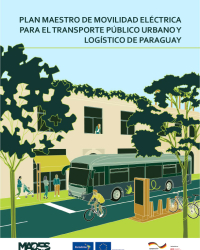
-1.png)
